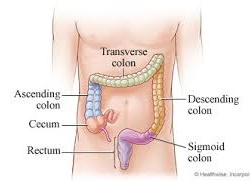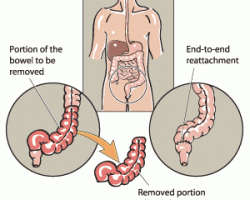
The bowel is a highly significant component of your digestive system because it is essential for both the removal of harmful materials from your body and the absorption of nutrients and minerals. The bowel comprises the large bowel or large intestine in addition to the small bowel or small intestine. But to prevent things from getting worse, certain sections of the colon might need to be removed due to infection or other damage. Therefore, bowel resection surgery refers to the removal of portions of the intestines.
How is surgery for bowel resection carried out?
Sections of the large or small intestine that have developed disease, infection, or cancerous growths within them are removed during this procedure. To create a new segment of continuous small or large intestine, the doctors and surgeons first identify the sections that need to be removed. They then perform the surgery, excising a section of tissue and stitching the two ends of the bowel together.


Types of bowel resection
Bowel resections can be of two types: small bowel resections, which are done on the small intestine, and large bowel resections, which are done on the large intestine. Below are the indications for each of them:
Small Bowel resection:
The following are some situations in which a small bowel resection might be necessary:
1. Benign or malignant growths or polyps
2. Polyps and precancerous growths
3. Injury-related damage to the small intestine
4. Small intestine congenital defects
5. intestinal obstructions
6. The development of small intestine ulcers, bleeding, and infection
7. Internal infections of the intestines
8. Additional small intestine disorders
Large bowel resection:
Many of the previously listed reasons also apply to large bowel resections. Nonetheless, the following lists a few particular justifications for large bowel resection:
1. Cancer of the colon
2. The illness known as diverticulitis, which primarily affects the large intestine
3. Ulcerative colitis or inflammation of the bowels
4. Volvulus, or abnormal twisting of the bowel
5. Intussusception, the term for intestines that slide into another section of the intestine
Risks of bowel resection
Bowel resection surgery has risks associated with it, just like any other surgery. After bowel resection, the following are some typical risks: –
1. Anesthesia-related adverse reaction
2. Pathogens
3. Heart attacks or strokes that occur during surgery
4. Infections
5. Prolonged bleeding, among other things
Specific risks for large and small bowel resections are mentioned as follows:
- Small bowel resection : Among the common risks are diarrhoea, internal bleeding in the intestine following surgery, accumulation of pus in the abdomen, infection of the incision site, and the stitched area rupturing.
- Large bowel resection : The most frequent risk factor in this situation is tissues pushing through the incision and creating an incisional hernia. Other complications include scar tissue and issues with material passage within the colon, among other possible harm to nearby organs. However these problems are uncommon, and surgeons perform resections with great success regularly.
Have a question? call us now
Need support? Drop us an email
Mon – Sat 07:00 – 21:00
We are open on

Saru International, Behind Mahamarg Bus Stand, Opp. To Kelkar Hospital, Gaikwad Nagar, Mumbai Naka, Nashik - 422002.
Phone: +91 80870 30000
Email: sachindeore@yahoo.com